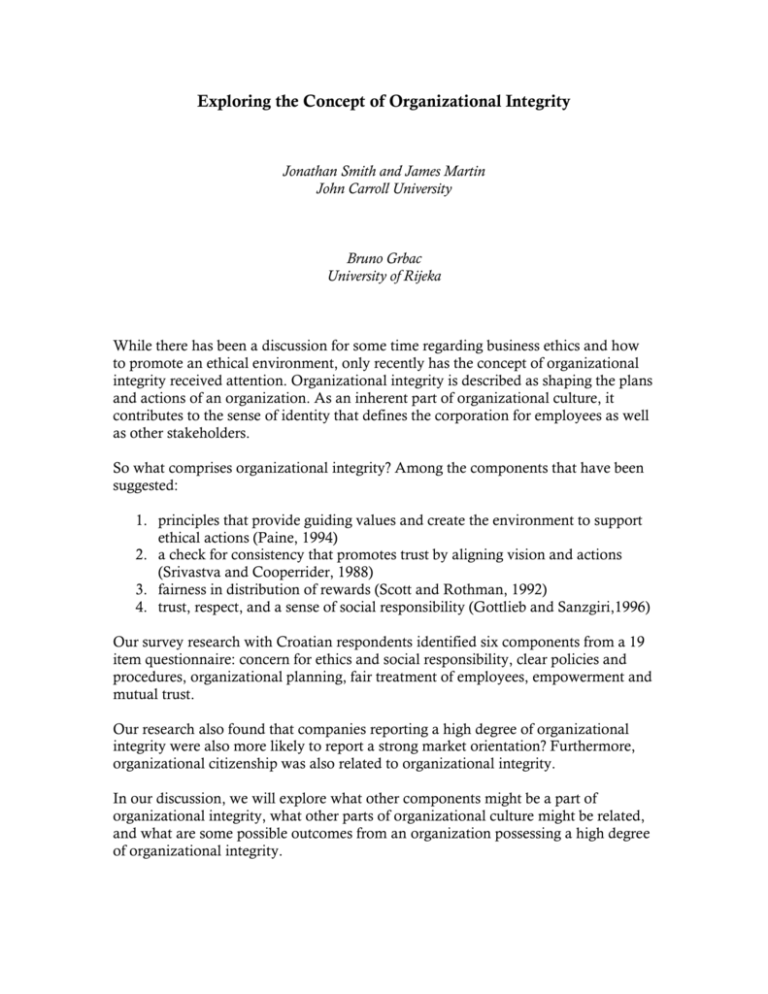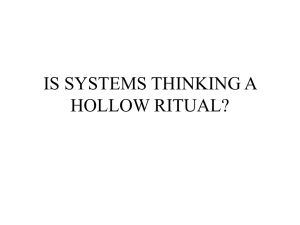Exploring the Concept of Organizational Integrity
advertisement

Exploring the Concept of Organizational Integrity Jonathan Smith and James Martin John Carroll University Bruno Grbac University of Rijeka While there has been a discussion for some time regarding business ethics and how to promote an ethical environment, only recently has the concept of organizational integrity received attention. Organizational integrity is described as shaping the plans and actions of an organization. As an inherent part of organizational culture, it contributes to the sense of identity that defines the corporation for employees as well as other stakeholders. So what comprises organizational integrity? Among the components that have been suggested: 1. principles that provide guiding values and create the environment to support ethical actions (Paine, 1994) 2. a check for consistency that promotes trust by aligning vision and actions (Srivastva and Cooperrider, 1988) 3. fairness in distribution of rewards (Scott and Rothman, 1992) 4. trust, respect, and a sense of social responsibility (Gottlieb and Sanzgiri,1996) Our survey research with Croatian respondents identified six components from a 19 item questionnaire: concern for ethics and social responsibility, clear policies and procedures, organizational planning, fair treatment of employees, empowerment and mutual trust. Our research also found that companies reporting a high degree of organizational integrity were also more likely to report a strong market orientation? Furthermore, organizational citizenship was also related to organizational integrity. In our discussion, we will explore what other components might be a part of organizational integrity, what other parts of organizational culture might be related, and what are some possible outcomes from an organization possessing a high degree of organizational integrity.











